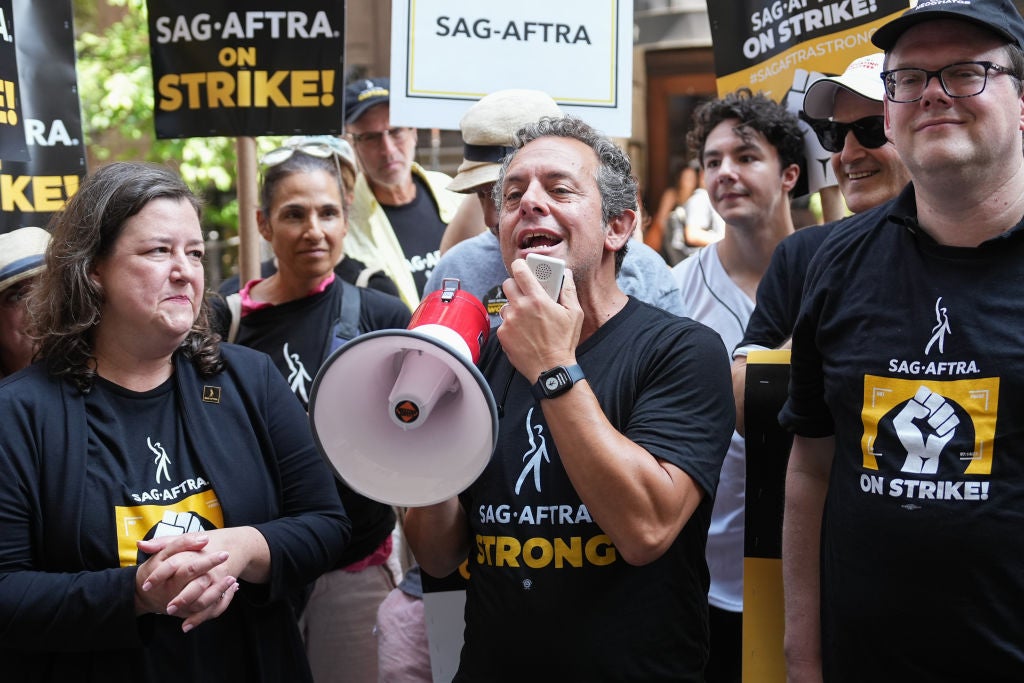
Amazon has defeated a vote to unionise workers at a Bessemer, Alabama warehouse. However, the union is not backing down, instead claiming that the ecommerce giant’s union bashing efforts were illegal. The news comes against a backdrop of mounting and intense scrutiny against gig economy companies.
The Amazon union defeat comes after about two months of vigorous campaigning from both Amazon and the Retail, Wholesale and Department Store Union (RWDSU). If the unionisation efforts had been successful, the vote would have marked the launch of the first US-based Amazon union. The new union would have transformed the relationship the tech giant has with its 800,000 stateside workers as more warehouses could have followed in Bessemer’s footsteps. Several celebrities and politicians – including President Joe Biden – backed the union.
The final tally by the National Labor Relations Board (NLRB) showed that of the 5,876 eligible voters only 3,041 made their voices heard. The final result ended with 1,798 people voting against forming a union with the RWDSU and 738 workers backing the effort. 505 ballots were challenged, meaning that their eligibility couldn’t be confirmed.
Following the Amazon union defeat, the RWDSU is demanding a full investigation into whether or not the tech titan’s campaign against the workers’ movement broke the law.
“Amazon has left no stone unturned in its efforts to gaslight its own employees,” said Stuart Appelbaum, president of the RWDSU. “We won’t let Amazon’s lies, deception and illegal activities go unchallenged, which is why we are formally filing charges against all of the egregious and blatantly illegal actions taken by Amazon during the union vote. Amazon knew full well that unless they did everything they possibly could, even illegal activity, their workers would have continued supporting the union.”
The RWDSU is claiming that Amazon forced employees to attend a series of meetings where company representatives argued against unionisation, that “they flooded the internet” with “misinformation”, “brought in dozens of outsiders and union-busters to walk the floor of the warehouse”, launched an extensive text messaging campaign and put up a ballot drop box at the warehouse premises against the wishes of the NLRB.
How well do you really know your competitors?
Access the most comprehensive Company Profiles on the market, powered by GlobalData. Save hours of research. Gain competitive edge.

Thank you!
Your download email will arrive shortly
Not ready to buy yet? Download a free sample
We are confident about the unique quality of our Company Profiles. However, we want you to make the most beneficial decision for your business, so we offer a free sample that you can download by submitting the below form
By GlobalData“We won’t rest until workers’ voices are heard fairly under the law,” Appelbaum said. “When they are, we believe they will be victorious in this historic and critical fight to unionise the first Amazon warehouse in the United States.”
Amazon has denied any wrongdoing, saying that claims that it intimidated employees are “not true.”
“Our employees heard far more anti-Amazon messages from the union, policymakers and media outlets than they heard from us. And Amazon didn’t win – our employees made the choice to vote against joining a union,” Amazon said in a statement.
The Seattle-headquartered firm added that its “employees are the heart and soul of Amazon” and that it is always eager to hear their feedback.
“We’re not perfect, but we’re proud of our team and what we offer, and will keep working to get better every day,” Amazon said.
An Amazon spokesperson added: “We said from the beginning that we wanted all employees to vote and proposed many different options to try and make it easy. The RWDSU fought those at every turn and pushed for a mail-only election, which the NLRB’s own data showed would reduce turnout. This mailbox—which only the USPS had access to—was a simple, secure, and completely optional way to make it easy for employees to vote, no more and no less.”
The RWDSU challenging the Amazon union defeat isn’t the only headache founder Jeff Bezos’ team has to face when it comes to its workplace practices.
In March, an internal memo was leaked which revealed that the ecommerce behemoth had been fully aware that its gruelling working conditions forced some of its delivery drivers to urinate in bottles while on the job. This is something that Amazon has denied and that it has kept refuting even after the memo was published in the press.
The NLRB also recently sided with two former Amazon employees who claimed that they had been illegally fired after voicing concerns against the company’s workplace practices and its impact on global warming. Again, Amazon denied any wrongdoing, saying that the two former staff members broke policies about speaking with the media. The NLRB has threatened to take the ecommerce business to court if it doesn’t accept the charges.
The backlash is not isolated to Amazon. Investors, the public and lawmakers are increasingly levying similar criticism against other gig economy companies, as noted by a recent thematic research report from GlobalData.
Uber and Deliveroo have both felt the sting of the backlash recently. In March, Uber was forced to reclassify its UK drivers as workers rather than self-employed contractors after losing a case in the Supreme Court in February.
Similarly, Deliveroo suffered one of the worst public listings ever in London in March after several top investors refused to invest in the startup because of its reliance on gig economy workers. As a result, the food-delivery app lost more than a quarter of its value on its first day of trading on the London Stock Exchange.




